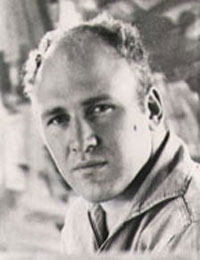
This book is a memoir about life in Iran. Its formal structure expands from the discussions of a secret book club that meets in the author's living room in Tehran to read and discuss banned books like Lolita, The Great Gatsby, Daisy Miller, and Pride and Prejudice. Beyond the book club, the author reminisces about life before, during, and after the revolution, the ascendence of the Ayatollah, and how life became so wretched for women in this country that was once so progressive.
The first fifty pages of this book I really disliked. I find the descriptions of the book club meetings overly precious and romantic, all the "magical mornings" and the "they bloomed into color" and how she dwells on their separate personalities. It all reads as very contrived, to me, since she said in the beginning that none of the characters were actually characters, that they are amalgams and distillations of actual people, renamed, combined, separated. So why dwell on each invented person's invented personality, especially in a "memoir"? I kind of liked her reading of Lolita. She is painfully aware of how her critical perspective is informed and skewed by her identification of Humbert as the Ayatollah, though. Which is good. But I'm not automatically receptive to feminism, even coming from someone in a chabor.
Then, for serious and for real, it started getting good. I think the beginning of the part that made my ears perk up was the anecdote about Nassrin (I think it was her) missing class and then coming back to report she had been jailed for 48 hours because the morality police had accused her of having "A Western attitude." And then CANED her for it? Lord. Makes me want to smack crabby academic feminists in this country in the head and say, "Dumbass, you think you've got problems?!" I realize that's probably irrational, but that's the reaction I had.
The Gatsby section I liked much better. I am flabbergasted by the way the Muslim fundamentalists and the Marxist extremists collaborated on the Islamic revolution. I had no idea that was going on -- how Marxist women in combat fatiques with shaved heads and totally, like, hardass communist ideas (communism being ideally genderless, in terms of all proletariats being equal) putting on VEILS to help the revolution, just because they wanted the Western influence out of Iran. Like, how shortsighted was THAT? Has to be one of the most idiotic political choices ever. You can just imagine some avid Marxist... and that "Adopt the veil to rid us of the West" speech must have been the last one she ever got to make in public. And the last time she got to walk down the street without her husband or father to walk behind.
The book makes a clear distinction between the people who had always been devout Muslims and those who adopted more extreme religious beliefs in order to gain political or social power. I think it's obviously necessary to separate people serving God in an honest and arduous way from people consciously using religion to oppress each other. I also, though, believe that what's corrupt at the top can be honest at the bottom -- that is, that there are people who virtuously and sincerely believe and follow oppressive rules because they genuinely believe that God wants them to, when in reality it's the people up at the top of the religion, handing down these strictures to enforce their agendas. So who to blame? There's a very blurry line between those who are conscious that it's all about power and control, and those who are blind to the human element at work, and only see God's will.
I have to believe that it's impossible for me to understand anyone in that part of the world -- totally impossible, because my cultural context is so foreign. So for me to look at those public virginity tests and say "What the hell!?" means nothing. Of course I can't understand it, it's beyond my scope and outside my experience. What's good about this book is seeing that there are people within that system for whom it is repulsive and horrifying as well. And not just those who have been to America and seen the contrast.
I stalled out reading this when I was still on the James section. I'd inadvertantly started reading about 10 books... forgetting I was already in progress on others that I'd just left lying around the house or car. I wanted to finish this, to get to the Jane Austen section, but I accidentally just read Persuasion instead.

